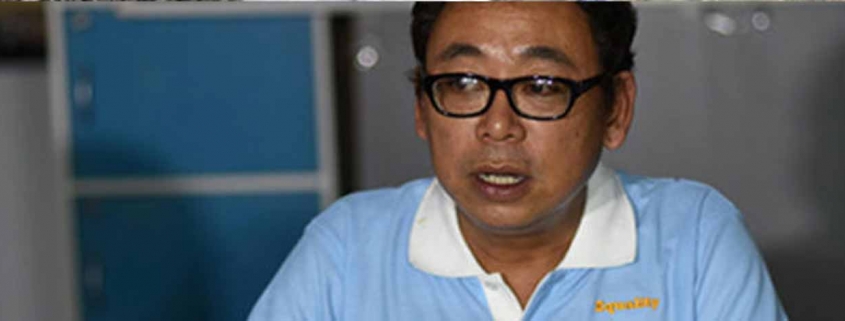YANGON—Will 2019 be a good or bad year for Myanmar? Given the unexpected problems and struggles that have cropped up in recent years—like the Rakhine conflict and the resulting crisis on the international stage, the economic downturn and intense armed conflicts—many no longer hold the high hopes and expectations they did in 2016, when Daw Aung San Suu Kyi led the National League for Democracy (NLD) in assuming the reins of power. Looking forward to the year ahead for Myanmar, there seems to be a mix of optimism and pessimism in the air. The Irrawaddy talked to political analysts, lawmakers and activists about their expectations for the new year.
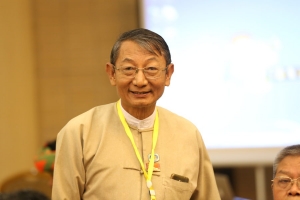
U Aung Kyi Nyunt, Upper House lawmaker and member of the NLD’s Central Executive Committee
“To tell the truth, based on the country’s political situation, 2019 will be a combination of good and bad. The transition to democracy is still only just beginning. I hope we can move forward with reforms.
“In Parliament, lawmakers have done a much better job of representing their constituencies than before. In 2018, the Union Parliament passed a total of 36 laws, including repealing and amending some undemocratic ones. Repealing or amending repressive laws could continue in 2019. Parliamentary outreach has also expanded last year. Parliamentary committees have become more engaged with the general public, accepting more complaints and suggestions. I expect this will gain momentum in 2019 and 2020.
“The northern Rakhine conflict, which has given the country a negative image on the international stage, will be a big challenge for Myanmar this year. [Tackling] the negative effects of the global trade war on a developing country like Myanmar, and strengthening democratic practices in the country, will also be key challenges this year.”
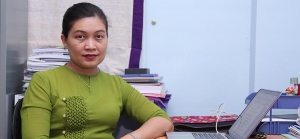
Ma May Sabe Phyu, women’s rights and peace activist, director of the Gender Equality Network
“2018 was a disappointing year for human rights, especially for freedom of speech and expression. The prison terms handed down against Ma Nang Pu and two others were totally unacceptable. [The three Kachin antiwar activists were arrested for participating in peaceful protests urging the government to help villagers who were trapped in the Tanai area after fleeing fighting between the Kachin Independence Army and the Myanmar military.] The convictions showed that public participation in the peace process is neglected, and that the judicial sector is not independent. There was also the case of the two Reuters journalists. Indeed, many bad things happened. I hope that in 2019, those will be corrected and that citizens’ rights to peaceful assembly and freedom of expression will be respected. I hope this year will be a good one for human rights and peace, and that Parliament passes laws ensuring better protection of women and children, as well as enacting the long-delayed Prevention and Protection of Violence against Women bill.”
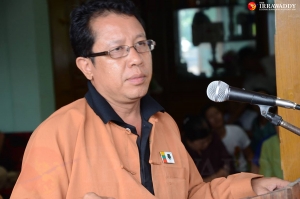
U Sai Leik, spokesperson of the Shan Nationalities League for Democracy (one of the major ethnic parties)
“I don’t think this year will be better than previous years. Because even if the fighting with the Tatmadaw [Myanmar’s military] ceases, the clashes between ethnic armed groups will continue. Besides, the problems with ARSA [the Arakan Rohingya Salvation Army, in northern Rakhine]won’t be settled immediately. The political situation is unstable and the rule of law is weaker than before. For those reasons, the business climate won’t improve and it is unlikely that foreign direct investment will pick up. If there is stability and rule of law, we can expect business growth. But looking at the current conditions, we can’t expect much.
“Regarding the peace process, we welcome the unilateral four-month ceasefire statement declared by the Tatmadaw. It would be complete if they declared a nationwide ceasefire. [The military’s temporary ceasefire order covers the Northern Command in Kachin State; the Northeastern, Eastern and Central Eastern commands; and the Triangle Command in Shan State, but does not cover Rakhine State, in western Myanmar, where it has been engaged in weeks-long clashes with the Arakan Army.] But if the Tatmadaw gets closer to the Northern Alliance groups while losing touch with the ethnic armed groups that signed the NCA [Nationwide Ceasefire Agreement], that would not be good. Historically, the Tatmadaw rarely holds talks and negotiates with all the EAOs at the same time.
“It is also not very reasonable for one side to announce that peace will be achieved by 2020. [At the end of 2018, the commander-in-chief of the defense services said the peace process would be completed by 2020 and that peace would be delivered to the people.] Conflicts that started more than 60 years ago can’t be ended within three years. But if the Tatmadaw opens the door to negotiations and discussions without discrimination, there is hope for the peace process.”
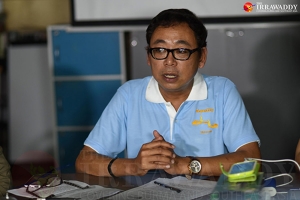
U Aung Myo Min, human-rights defender and executive director of Equality Myanmar
“We don’t hold high expectations [as before]. [The reforms] will take time, because there are many challenges and barriers. Improving human rights will be an evolution, not a revolution. But the most important thing is that we need to be cautious not to turn back from where we are now. Every effort must be made to address those challenges and we must work together. Whether they will be addressed largely depends on the government’s willingness to change and collaborate.
“Regarding racial and religious extremism and attacks against human-rights defenders, this will take a long time to fix. It depends not only on the government’s willingness, but also on every citizen’s mindset and belief. Amending the law is easy, but changing minds takes time. It will be impossible to [achieve everything we]want in 2019.”
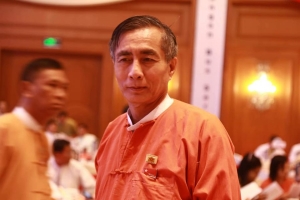
U Kyaw Zay Ya, outspoken Yangon regional lawmaker
“Business-wise, I think there will be economic development and business growth, as the State Counselor [Daw Aung San Suu Kyi] has called on foreign businesses to invest in Myanmar and new investment and company laws have also been introduced. The only thing we need is stability.
“For Yangon, if the regional government continues [to act as it did in]2016, 2017 and 2018, failing to implement its vows, there won’t be change. The regional government must accomplish what it has been promising for the past three years. The plan to introduce a cashless payment system for the Yangon Bus Service, arrangements for street vendors and the resettlement plan for squatters—all have failed so far. If they implement at least 60 percent of the promises and pledges made in Parliament, the region will see significant achievements. Yet so far, the government has made little effort to collaborate with Parliament.”

